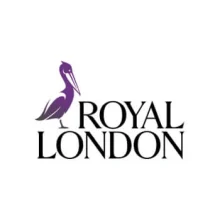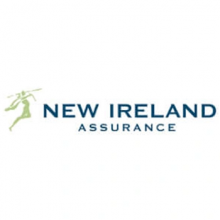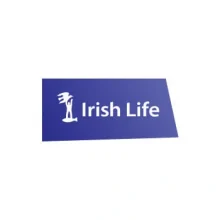If you’re a company owner/director and want your company to start paying pension contributions on your behalf, then a Directors Pension Plan, which must now be set up as a Master Trust, should be carefully considered against a PRSA alternative.
The reason that a PRSA is now viable option for company director pension funding, is due to the significant changes made in the Finance Act 2022, which became law in January 2023.
The key impacts of this 2022 Finance Act and subsequent Acts, mean:
- Employers can contribute to a PRSA, without an employee BIK implication.
- An annual funding limit of 1 times salary now applies, with no reference to the length of employment.
- Lump sum contributions, which stay within salary related limits (allowing for any regular contributions in the same year) can claim full corporation tax-relief in that year.
Notable PRSA considerations include:
- Phased Retirement – Company pension funding, can be split over a number of PRSA contracts, to allow for phased retirement benefits, which can’t be done with a Executive – Master Trust, as all retirement benefits related to the same employment must be taken at the same time.
- Late Retirement -A PRSA can be funded and/or continued to age 75, whereas with an Executive – Master Trust it’s normally up to age 70, although you can delay benefit drawdown.
- Death-in-Service – On death prior to benefit drawdown, the full PRSA value is payable as a tax-free lump sum to a spouse, whereas, under an Executive – Master Trust this is restricted to 4 times salary (plus a refund of any personal contributions), with the balance then used to provide a taxable pension, via an annuity, or an ARF for dependents.
- Additional Cash Injection – Additional employer post-retirement age funding can be made to a PRSA, which carries a right to take 25% as a lump sum. However, where an Executive – Master Trust – benefits have already been taken at normal retirement age (NRA), any fresh Master Trust funding post-NRA, would all have to be taken as a transfer to an ARF.
- Early Retirement – Where a proprietary director decides to bona fide retire, before age 60 under a PRSA, they can still retain their shareholding, not so under a Master Trust, although a Master Trust does allow you to continue to work elsewhere.
Master Trust – Executive Pension V PRSA Alternative
So, for new director pension plans, is an PRSA now a better option?
Depending on individual circumstance, the Executive – Master Trust option may still remain the better choice:
- Higher Funding – If there are sufficient funds within the company, to fund beyond 1 times salary annually, then a Mater Trust – Executive pension will prove more suitable.
- Late Starter – Where a business owner is playing catch up, in terms of creating a decent sized pension pot, and has the past service and company funds available to inject a substantial lump sum, then again a Master Trust – EPP is more than likely the best solution.
- Retirement Lump Sum – Where a plan holder has a very large salary and long (20 yrs or more) company service, in some cases a 1.5 times final salary multiple, may lead to a higher tax-free lump sum come retirement, than taking 25% of the retirement fund value.
- Ceasing Contributions – Where the holder of an Executive – Master Trust, needs to make their plan paid up, perhaps due to taking up a different employment, the option to transfer to a Personal Retirement Bond only exists under this plan type, which may offer a lower AMC on transfer.
- Early Benefits Access – There is a big consideration, for those who may need to access their pension benefits early i.e. from age 50, and before age 60. Under a Master Trust, whilst you must retire from the employment that last funded your pension, you can continue working elsewhere, not so with a PRSA, although you can retain your shareholding, you must actually stop working to take benefits early.
If I already have an Executive Pension Plan, should I switch to a PRSA or to the new Master Trust executive pension plan?
Firstly, beyond the nuances of taking early, or even extended late retirement, having multiple plans, and pre-retirement death benefit considerations, if your existing Executive Pension Plan (EPP) has low charges i.e. 100% net allocation and an AMC of 1.00%, our general advice would be to transfer it to a Master Trust. If on the other hand, your charges appear high, you should carefully consider both PRSA and Master Trust options.
Can a company director fund a PRSA and a new Master Trust Executive Pension simultaneously?
Yes, a company owner could choose to put company monies into both a directors, Executive – Master Trust and a PRSA at the same time, provided they stay within revenue funding limits.
Under the Executive Pension rules, contribution limits are governed by any retained pension benefits, current salary, and the associated company service to your selected normal retirement age (min 60). This creates two funding limitations (a) you can’t fund for a pension of more than 2/3rds final salary in retirement and (b) you can’t exceed the standard fund threshold, to be 2.8 million by 2009.
Note: (Max funding calculations remain dynamic as salaries and fund values change over time on your journey to retirement).
Under a PRSA employer contribution limits are more simply restricted to once salary, with an upper limit of 115K (since 1st Jan 2025) plus, any employer funding beyond this, would be subject to BIK.
If you’re funding a PRSA in addition to an Executive Pension Plan be careful, as the maximum funding limits, and not only the maximum funding threshold applies to your overall pension funding in the round.
So, if your running your max funding quote under your Executive Pension Plan (EPP) each year, you must include the value of your PRSA in your current fund value figure, which means the higher this figure, the more of a knock on affect it will have on your EPP contribution figure.
This begs the question, if you’ve already reached the maximum funding limits under your EPP in any one trading year, can you get around this by throwing an additional once salary into your PRSA in the same year? Changes in PRSA legislation are relatively new and the Revenue is yet to update the Revenue Pensions Manual to definitively answer this.
So, technically Revenue have not said Yes or No, but until they do provide clarity, we would take the view that its best to remain cautious. Although a company can, technically contribute to both an Exec and PRSA concurrently, where you revenue max your monthly Exec contributions and max SP your PRSA in the same year, your most likely going to be overfunded under the Exec come retirement. However, if you want to build up your retirement fund more quickly in the early years, (for now at least) there is nothing to stop you doing so, although it may be best practice to run checks 5 years prior to retirement, and dependent on expected future salary levels to NRA, to fund only the Exec from 5 years out.
In Conclusion
If you’re a company owner/director, seeking to set up a new pension plan, to fund for retirement through the payment of employer contributions, then in many cases a PRSA could indeed prove your best option (based on current legislation).
However, your companies ability to fund beyond the PRSA 1 times salary limit, and to provide sufficient length of service, with the possibility of a high salary on the lead up to retirement, (to justify a higher tax-free lump sum), then all this should lean you to a Master Trust – Exec Pension.
Existing Plans and Charge Considerations
If you still have an existing Executive Pension Plan, a transfer to Master Trust or a PRSA will have to happen *soon, so it makes sense to assess the opportunity to reduce charges now, not to mention reviewing your investment strategy and broker service.
* If you’re a company owner and you already have an Executive Pension Plan, taken out before 22nd April 2021, you have up until April 2026, before you will have to transfer it under European pension governance legislation (IORP II) to a Master Trust – or to a PRSA, but there is nothing stopping you from taking action on this earlier, if so required.
Phone Consultation
If you would like to explore and discuss the new rules and how they may apply to you, your company, or to your executive employees, please get in touch.
Contact: Ken O’Gorman – Director – CB, RPA, QFA, SIA – Pension Specialist
One Quote Financial Brokers on 01 845 0049 or email: ken@onequote.ie N








